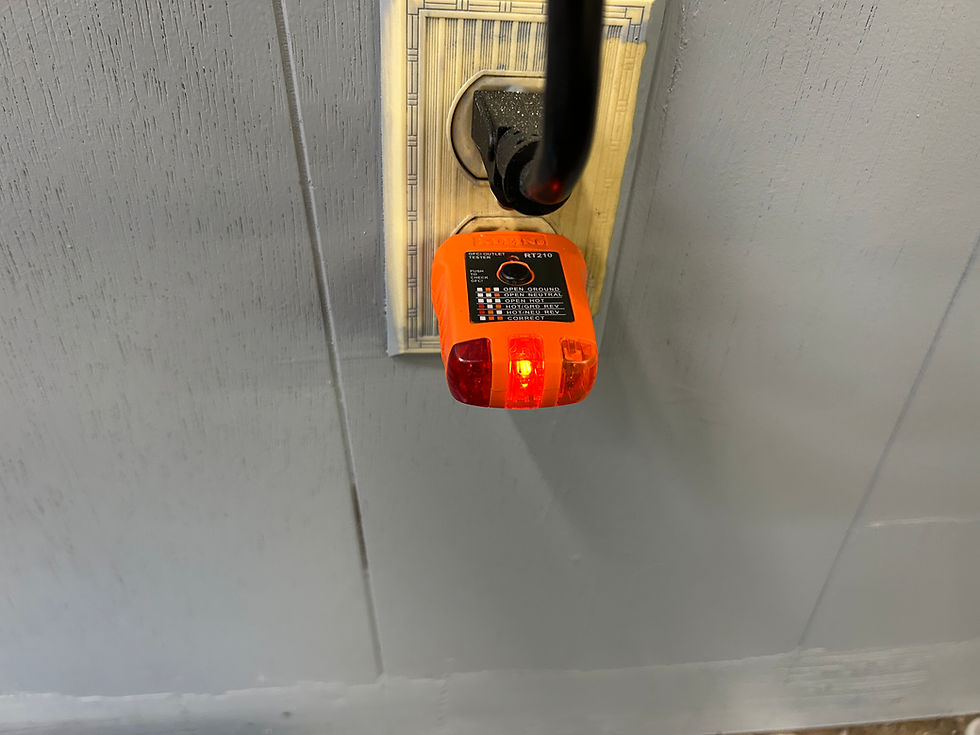What to Expect from a Home Inspection
- aaronwest241
- Sep 16, 2025
- 4 min read
Buying or selling a property is a big step. One of the most important parts of this process is the property inspection. It helps you understand the true condition of a home or commercial building before making a decision. Knowing what to expect from a property inspection can make the experience smoother and less stressful. This guide will walk you through the key details, so you feel confident and prepared.
Understanding Property Inspection Details
A property inspection is a thorough examination of a building’s condition. It covers everything from the roof to the foundation, plumbing, electrical systems, and more. The goal is to identify any issues that might affect the safety, value, or livability of the property.
During the inspection, a certified inspector will check for:
Structural problems like cracks or water damage
Roof condition and potential leaks
Functionality of heating, ventilation, and air conditioning (HVAC) systems
Plumbing leaks or faulty pipes
Electrical wiring safety and code compliance
Signs of pests or mold
The inspector will provide a detailed report with photos and notes. This report helps buyers negotiate repairs or price adjustments. Sellers can also use it to fix problems before listing the property.

Why Property Inspection Details Matter
Knowing the details of a property inspection helps you avoid surprises after closing. It gives you peace of mind by revealing hidden problems early. For commercial property owners, it ensures the building meets safety standards and local regulations.
A thorough inspection can save you money in the long run. For example, catching a small leak early can prevent costly water damage later. It also helps you plan for future maintenance and upgrades.
What Happens During a Property Inspection?
The inspection usually takes 2 to 4 hours, depending on the size and type of property. Here’s what typically happens:
Walkthrough - The inspector tours the entire property, inside and out.
Testing Systems - They test appliances, HVAC, plumbing fixtures, and electrical outlets.
Checking Structure - Walls, ceilings, floors, windows, and doors are examined for damage or wear.
Roof and Exterior - The roof, gutters, siding, and foundation are inspected for issues.
Report Preparation - After the inspection, the inspector compiles a detailed report with photos and recommendations.
You can attend the inspection to ask questions and learn about the property firsthand. This is a great opportunity to understand maintenance needs and potential concerns.

Tips for a Smooth Inspection Day
Clear access to all areas, including the attic and basement.
Make sure utilities are on (water, electricity, gas).
Remove pets or secure them safely.
Prepare a list of questions or concerns for the inspector.
How much does a home inspection cost in NY?
The cost of a home inspection in New York varies based on property size, age, and location. On average, prices range from $300 to $600. Larger or older homes may cost more due to the extra time and expertise required.
Some factors that influence the price include:
Square footage of the property
Number of systems and components to inspect
Additional services like radon testing or termite inspection
Urgency or scheduling flexibility
While cost is important, choosing a qualified and experienced inspector is key. A thorough inspection can save you thousands by uncovering hidden problems.

How to Use Your Property Inspection Report
Once you receive the inspection report, take time to review it carefully. The report will highlight:
Major defects that need immediate attention
Minor issues that can be monitored or repaired later
Safety hazards that require urgent fixes
Maintenance tips to keep the property in good shape
Use this information to:
Negotiate repairs or price reductions with the seller
Plan your budget for future repairs or upgrades
Decide if the property meets your needs and expectations
If you don’t understand something in the report, ask the inspector for clarification. It’s important to fully grasp the condition of the property before moving forward.
Preparing for Your Next Steps After Inspection
After the inspection, you have several options depending on the findings:
Proceed with the purchase or sale if the property is in good condition.
Request repairs or credits from the seller to address issues.
Walk away if the problems are too severe or costly.
Schedule specialized inspections for specific concerns like mold or asbestos.
Remember, a property inspection is a tool to help you make an informed decision. It’s not about finding reasons to cancel but about understanding what you’re getting.
For those in Western Pennsylvania, working with a trusted local inspection service like Keystone Castle Inspections ensures you get accurate, unbiased insights tailored to the region’s unique building styles and conditions.
Taking the time to understand property inspection details empowers you to make confident property decisions. Whether buying, selling, or maintaining a home or commercial building, a thorough inspection is your best defense against unexpected problems. Approach the process with knowledge and preparation, and you’ll enjoy greater peace of mind every step of the way.




Comments